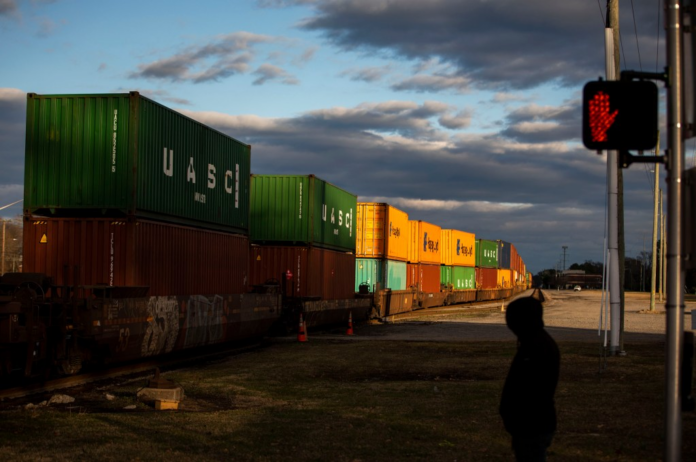Living and working in Hampton Roads, we know the Port of Virginia is more than cranes and containers. It is a lifeline for jobs, opportunities and the economic future of our region. For decades, the port has thrived because of bipartisan vision and more than a billion dollars in public investment — investment that belongs to all of us. The port was never meant to benefit just one company.
Yet today, Norfolk Southern uses its control of the Norfolk & Portsmouth Belt Line Railroad to block another rail carrier, CSX, from gaining direct access to Norfolk International Terminals. While this may appear to be a dispute between two railroads, the consequences for our community are serious and undeniable. Because CSX is kept out, thousands of containers that could move efficiently and quietly by rail are instead forced onto trucks — more than 100 trips a day — along Hampton Boulevard, through the heart of Norfolk, past Old Dominion University, and into neighborhoods where children play.
Anyone who drives those roads sees the results: clogged commutes, heavy trucks rattling past homes and schools, greater safety risks, and costly road damage left to local taxpayers. The impact is not only on our roads and wallets, but also on our health and environment. Every unnecessary truck trip adds more diesel exhaust to our air and more carbon pollution to our skies at a time when our community — and our nation — should be moving toward cleaner transportation.
The costs, however, extend beyond traffic and pollution. With only one railroad having access to the port, competition suffers and shipping costs rise. Those higher costs are passed along to small businesses and ultimately to families who pay more for everyday goods. That is not fair, and it is not how public infrastructure was intended to work.
Moreover, limiting access to a publicly funded asset undermines the principles of transparency and accountability. The Port of Virginia was built to serve the entire commonwealth, not to entrench corporate advantage. When one company can dictate terms and exclude others, it stifles innovation and discourages investment in more efficient, sustainable logistics solutions. This is especially troubling as our region seeks to grow its role in global trade and attract new business.
Like investment in the port, ensuring competition is a bipartisan issue. Gov. Glenn Youngkin wrote the U.S. Surface Transportation Board in August, saying, “Ensuring that CSXT can access on-dock rail at [Norfolk International Terminal] would increase flexibility and efficiency for the port, increase competitive options for intermodal freight customers, and benefit the public. The Port of Virginia at NIT was always intended to be served by two railroads with on-dock rail access.” I couldn’t agree more.
If Washington approves Norfolk Southern’s bid to tighten its grip on the Belt Line, the monopoly will be locked in — and the harms to our neighborhoods, environment and economy will only grow. Rejecting the proposal, on the other hand, would restore true competition, reduce truck traffic on local streets and strengthen a Port that benefits the entire region.
This is not about opposing Norfolk Southern. It is about standing for competition, fairness and community. We want both Norfolk Southern and CSX to be engaged in our region’s economy. But Hampton Roads should never be asked to sacrifice safety, sustainability and affordability so one railroad can protect its monopoly.
Hampton Roads has always thrived when we put the public good first. The Surface Transportation Board should reject Norfolk Southern’s application and ensure that the Port of Virginia continues to serve all of us — not just one railroad that has already abandoned our community once before.
Louisa M. Strayhorn of Virginia Beach is a former member of the Virginia Port Authority Board, a former councilwoman for the city of Virginia Beach, and a former director of the Virginia Department of Business Assistance.


